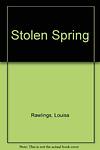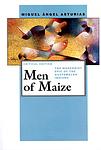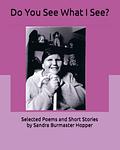The Greatest Russian, Danish, Guatemalan, Peruvian Books From 1940 to 1949
Click to learn how this list is calculated.
This list represents a comprehensive and trusted collection of the greatest books. Developed through a specialized algorithm, it brings together 305 'best of' book lists to form a definitive guide to the world's most acclaimed books. For those interested in how these books are chosen, additional details can be found on the rankings page.
Genres
Countries
Date Range
Reading Statistics
Click the button below to see how many of these books you've read!
Download
If you're interested in downloading this list as a CSV file for use in a spreadsheet application, you can easily do so by clicking the button below. Please note that to ensure a manageable file size and faster download, the CSV will include details for only the first 500 books.
Download-
1. The Real Life of Sebastian Knight by Vladimir Nabokov
"The Real Life of Sebastian Knight" is a novel centered around the protagonist's quest to understand and write a biography about his deceased half-brother, a famous author. However, as he delves deeper into his brother's life, he encounters numerous obstacles and confusions, including misleading information, false leads, and the challenge of distinguishing between the man and his literary persona. Ultimately, the protagonist's journey becomes a profound exploration of identity, truth, and the blurred line between fiction and reality.
The 1736th Greatest Book of All Time -
2. The President by Miguel Angel Asturias
The novel in question is a gripping political drama set in an unnamed Latin American country, where a ruthless dictator wields absolute power. The narrative delves into the dark and corrupt world of political machinations following the assassination of a colonel, which triggers a series of events that expose the brutal and oppressive regime. Through the eyes of various characters, including the paranoid president, the falsely accused, and the oppressed citizens, the story explores themes of power, fear, and injustice, painting a vivid picture of a society under the thumb of a tyrannical leader. The book is a powerful critique of dictatorship and a poignant exploration of the human cost of absolute power.
The 1902nd Greatest Book of All Time -
3. Broad and Alien is the World by Ciro Alegría
"Broad and Alien is the World" is a novel that explores the harsh realities of life for indigenous people in the Peruvian Andes under the oppressive rule of landowners. The story follows the struggles and ultimate downfall of the Rucas family as they resist the exploitation and abuse from those in power. The narrative is a poignant critique of the social injustices faced by indigenous communities and their fight for survival and dignity.
The 2452nd Greatest Book of All Time -
4. Early Spring by Tove Irma Margit Ditlevsen
"Early Spring" is a poignant autobiographical account of a young girl's coming of age in a working-class neighborhood of Copenhagen during the 1920s and 1930s. The narrative delves into the complexities of her family life, her struggles with identity and self-worth, and her passionate pursuit of writing as a means of escape and self-expression. The book captures the emotional landscape of the protagonist as she navigates the challenges of adolescence, the pressures of societal expectations, and her own burgeoning literary ambitions, all set against the backdrop of a changing Denmark. Through her introspective and lyrical prose, the story offers a deeply personal exploration of growth, resilience, and the relentless pursuit of one's dreams amidst adversity.
The 3464th Greatest Book of All Time -
5. Dark Avenues by Ivan Bunin
"Dark Avenues" is a collection of short stories that delve into the complex and often shadowy aspects of human love and relationships. Set primarily in Russia before the Bolshevik Revolution, the tales explore the passions, betrayals, and yearnings of a diverse cast of characters, from aristocrats to peasants. The author's rich prose and deep psychological insight paint a vivid picture of the era and the timeless nature of love's joys and sorrows. Each story in the collection stands as a testament to the author's mastery of the short story form and his ability to capture the nuances of the human heart.
The 3722nd Greatest Book of All Time -
6. The Return and Other Stories by Andrey Platonov
"The Return and Other Stories" is a collection of short narratives revolving around the theme of human struggle and resilience in the face of oppressive political regimes and harsh living conditions. The stories, set against the backdrop of Soviet Russia, explore the complexities of human nature, the power of hope, and the resilience of the human spirit. The characters, often ordinary people, grapple with existential questions and the harsh realities of life, providing a poignant critique of the socio-political landscape of the time.
The 3796th Greatest Book of All Time -
7. Stolen Spring by Hans Scherfig
"Stolen Spring" is a satirical novel that delves into the oppressive and rigid educational system of a Danish boys' school in the 1930s. Through the eyes of its young protagonists, the narrative critiques the stifling and often absurd academic environment that prioritizes rote learning and strict discipline over genuine intellectual growth and individuality. The story exposes the tragic consequences of such an education on the spirits and lives of the students, highlighting the loss of youth and potential as the system fails to nurture or understand the needs of its pupils.
The 4907th Greatest Book of All Time -
8. Winter's Tales by Isak Dinesen
"Winter's Tales" is a collection of enchanting stories that weave together elements of folklore, fantasy, and European culture. Set against the stark and often unforgiving landscapes of Scandinavia, these tales delve into the complexities of human nature, exploring themes of love, loss, courage, and redemption. The narratives are characterized by their lyrical prose, intricate plots, and the author's unique ability to blend the magical with the mundane, inviting readers into a world where the extraordinary is possible and the human spirit is celebrated in all its facets. Each story serves as a testament to the enduring power of storytelling and its capacity to illuminate the depths of the human condition.
The 5289th Greatest Book of All Time -
9. Men Of Maize by Miguel Angel Asturias
The book is a magical realist novel that delves into the lives, traditions, and struggles of the indigenous people of Guatemala, intertwining their personal stories with the mythic and spiritual beliefs rooted in their connection to the land, particularly the cultivation of maize. The narrative, rich in symbolism and poetic language, explores the impact of modernization and exploitation on rural communities, critiquing the forces of colonialism and capitalism that disrupt the harmony between humans and nature. Through a series of interconnected tales, the novel paints a vivid portrait of a culture in transition, grappling with the loss of its identity and the fight to preserve its heritage.
The 7180th Greatest Book of All Time -
10. Selected Poems by Boris Pasternak
This collection of poetry offers a rich tapestry of the author's lyrical and philosophical musings, reflecting his deep engagement with nature, love, and the tumultuous socio-political landscape of his time. The poems traverse a wide emotional and intellectual spectrum, from intimate personal experiences to grand historical narratives, all woven together with a masterful command of language and imagery. The poet's unique voice resonates throughout the anthology, revealing a profound connection to the human condition and an unyielding quest for truth and beauty amidst the complexities of the 20th century.
The 7180th Greatest Book of All Time -
11. Discussion with Einstein on Epistemology by Niels Bohr
This book is a detailed account of the intellectual exchange between two of the greatest physicists of the 20th century. It explores their contrasting views on quantum theory and the philosophical implications of their work. The book provides a deep insight into their debates on the fundamental nature of reality, the role of the observer in physics, and the limits of human knowledge. It's a profound exploration of the intersection between physics and philosophy.
The 7972nd Greatest Book of All Time
Reading Statistics
Click the button below to see how many of these books you've read!
Download
If you're interested in downloading this list as a CSV file for use in a spreadsheet application, you can easily do so by clicking the button below. Please note that to ensure a manageable file size and faster download, the CSV will include details for only the first 500 books.
Download








